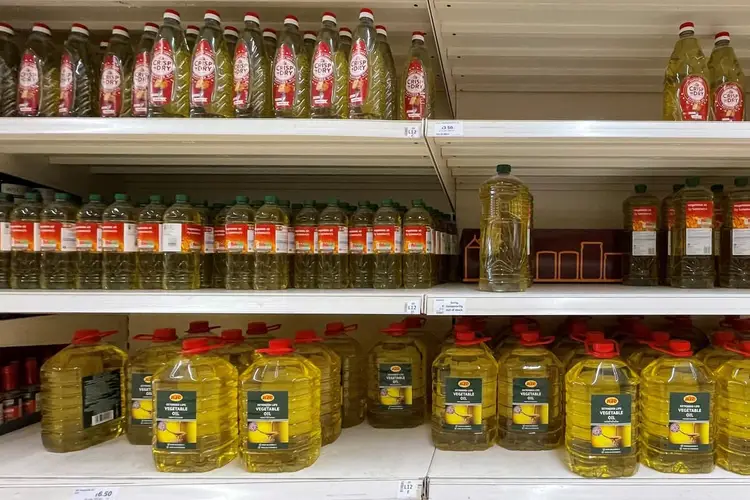Can cooking oil cause cancer?

A new study from the US government indicates that the common use of cooking oils in heavily processed Western diets might be linked to a rise in colon cancer rates.
A research article in the medical journal Gut found that certain unhealthy seed oils, including those derived from sunflower, grapeseed, canola, and corn, could lead to long-term inflammation in the body.
So far, there hasn't been any concrete evidence linking cooking oil to colon cancer.
The research analyzed 81 cancer samples from individuals aged 30 to 85 and discovered that the amount of lipids derived from oils in the tumors was greater than that of the healthier fats.
These fats are recognized for worsening inflammation, encouraging tumor development, and weakening the body's ability to fight cancer.
Dr. Timothy Yeatman, a physician-scientist, highlighted that the findings emphasize the critical importance of reevaluating certain elements of the Western diet. This includes harmful chemicals, inflammatory seed oils, highly processed foods, saturated fats, and added sugars.
Dr. Yeatman stated, "It's widely recognized that individuals with poor eating habits tend to experience higher levels of inflammation in their bodies."
"We can observe inflammation in colon tumors, and cancer acts like a persistent wound that never heals. When your body is constantly consuming highly processed foods, its capability to repair that wound diminishes because of the inflammation and weakened immune response, which in turn facilitates the growth of cancer."
Despite this, prominent health organizations in the United States have pointed out that there is no proof connecting moderate use of seed oils within a well-rounded diet to cancer.
Understanding Colon Cancer
Bowel cancer is a term used for any type of cancer that arises in the large intestine, which consists of the colon and rectum.
As reported by the NHS, colorectal cancer ranks among the most frequently occurring cancers in the UK.
Catching colon cancer early with screening can make it easier to treat.
While the precise cause of bowel cancer remains unclear, it is believed that a combination of environmental influences, personal lifestyle decisions, and genetic changes can contribute to its development. Additionally, certain medical conditions might elevate the risk of developing bowel cancer.
Your chances of developing bowel cancer increase if you're over the age of 50, smoke, or are carrying extra weight.
The NHS recommends maintaining a balanced diet and staying physically active to lower your chances of developing bowel cancer.
When it comes to treatment, there are several approaches including surgery, chemotherapy, radiation therapy, and targeted drugs, among others.
"What Cooking Oils Can I Use?"
Cooking oils can be beneficial for your health. They may provide essential nutrients that our bodies require in significant quantities for energy and to support overall bodily functions.
Researchers behind the American study have concluded that oils rich in omega-3 fatty acids, found in avocados and olives, are a better and healthier alternative to seed oils.
This doesn’t mean that sunflower oil is unhealthy. In fact, it contains low levels of saturated fat and is rich in two kinds of fatty acids.
However, sunflower oil, similar to many other seed oils, is rich in omega-6 fatty acids. Eating too many foods high in these fatty acids may result in higher levels of inflammation in the body.













































